ATSU AHEC program office
Overview
On Oct. 1, 1988, Kirksville College of Osteopathic Medicine, known today as A.T. Still University-Kirksville College of Osteopathic Medicine (ATSU-KCOM), received Area Health Education Centers (AHEC) funding from the Health Resources and Services Administration to establish the ATSU AHEC Program Office, the longest standing AHEC program office in Missouri. Along with establishing the program office, ATSU-KCOM worked with the board of the Northeast Missouri Health Council to establish the Northeast Missouri (NEMO) AHEC, the first regional AHEC to be formally incorporated in the state. Since then, the ATSU AHEC Program Office has helped establish two other AHEC program offices, one at the University of Missouri School of Medicine and one at Saint Louis University School of Medicine, as well as six additional regional AHEC centers across the state. Together these program offices and regional centers form the Missouri AHEC (MAHEC) network.
In 2017, on behalf of the three University program offices and seven regional AHEC centers, the ATSU AHEC Program Office submitted a single HRSA grant application for the MAHEC network. Currently, ATSU AHEC administers the awarded funds for the MAHEC network. The transition to a single grant application allows members of the network to work together to develop, implement, and evaluate the new AHEC Scholars Program and other activities with increased efficiency.
The ATSU AHEC Program Office collaborates with ATSU-KCOM’s Missouri Clinical Training Region and regional AHEC centers in Missouri to identify and support clinician preceptors at high-quality clinical education sites and to place students and residents in community-based training at these sites. There is a special emphasis on community immersion experiences and provision of care to underserved populations. The ATSU AHEC Program Office also produces and coordinates programs to educate and inform medical students about issues of healthcare access, availability, and quality as they prepare to work in medically underserved areas. In addition to the work with preceptors and medical students, the ATSU AHEC Program Office seeks resources and manages funding awards for targeted projects. All ATSU AHEC Program Office activities are informed by and contribute to accomplishment of the ATSU and ATSU-KCOM strategic plans.
Mission, vision, values
Mission
To support and enhance ATSU-KCOM’s efforts to train primary care physicians and other health professionals who are well suited to practice in all communities, but especially in rural and underserved areas, and to coordinate ATSU-KCOM’s activities and programs with those of the participating schools and regional centers that comprise the MAHEC network.
Vision
ATSU AHEC will be an ATSU center of excellence, enhancing the health and well-being of underserved communities and populations.
Values
- Community health and well-being
- Interprofessional collaboration
- Adaptability
- Cultural proficiency
Strategic Plan (FY2021-2026)
Please view the ATSU AHEC Strategic Plan (FY2021-2026).
MAHEC network
History
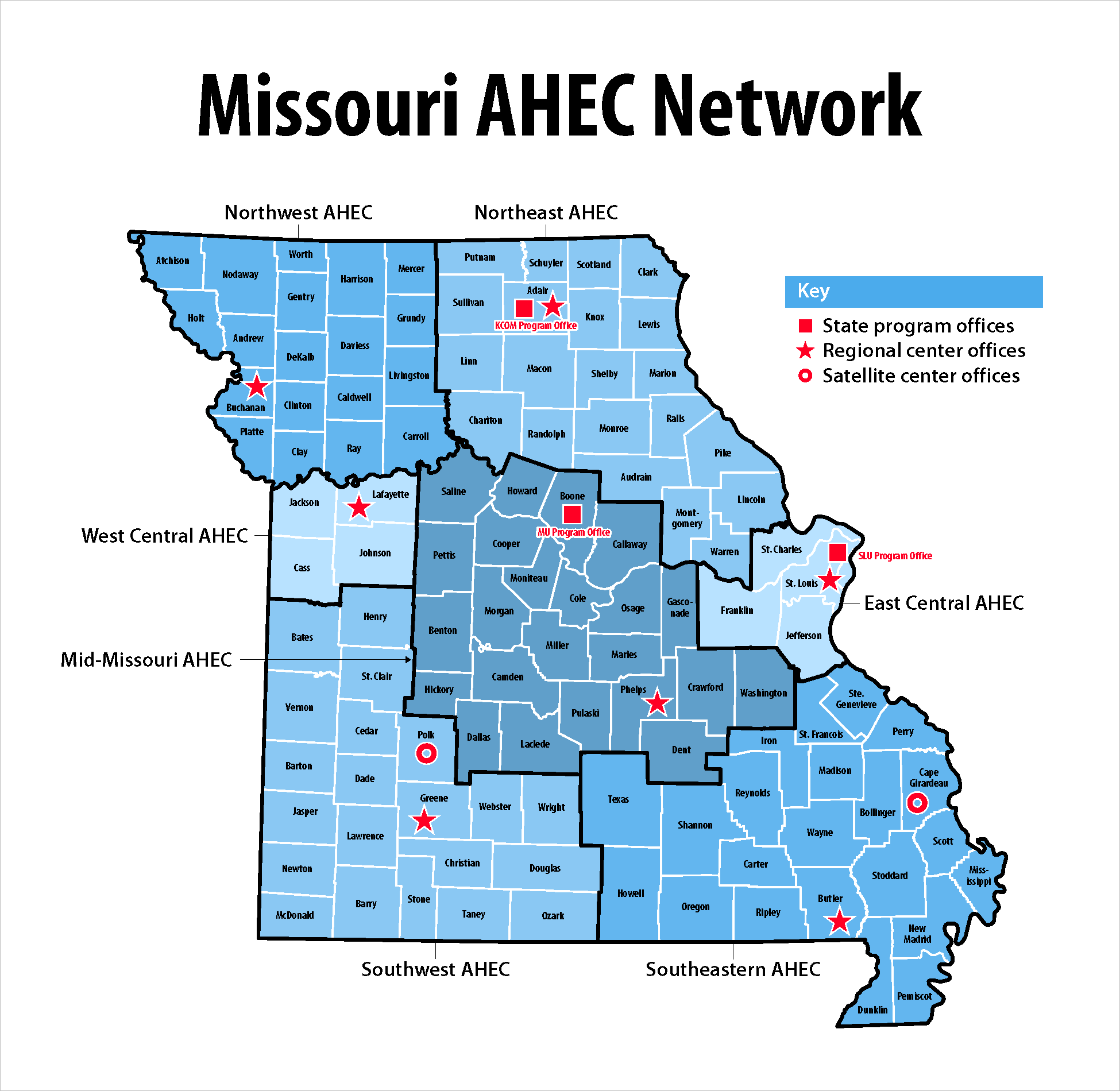
Federal funding to Missouri in 1988 established the foundation for an AHEC system to address the maldistribution crisis in Missouri’s healthcare workforce. In 1993, the ATSU AHEC Program Office participated in a Missouri Department of Health and Senior Services work group that named and established the Primary Care Resource Initiative for Missouri (PRIMO). During many of the ensuing years, the PRIMO Program has provided financial support for AHEC activities. Also in 1993, ATSU-KCOM and the University of Missouri School of Medicine signed an agreement to collaboratively establish and manage the MAHEC network. In 2004, the Missouri General Assembly passed and Gov. Bob Holden signed legislation establishing statutory recognition of the MAHEC network (Section 191.980, RSMo).
Since 1988, seven regional AHEC centers have been established, and three of Missouri’s medical schools, along with numerous collaborators across the state, have taken up the torch to improve the supply and distribution of multiple healthcare disciplines through health career programs for Missouri youth, community-based training, and provider recruitment. The ATSU AHEC Program Office takes the lead and works collaboratively with the MAHEC network members to deliver services to support and grow the healthcare workforce across Missouri.
The MAHEC network provides services throughout the state by creating partnerships, amplifying resources, and helping educate communities on the need to proactively recruit, train, place, and retain healthcare personnel. Many partnerships with community action groups, social service agencies, and healthcare providers make the MAHEC network a critical collaborator in improving the healthcare workforce.
For more information, visit the MAHEC website and find links to the regional AHEC centers and program offices.
MAHEC locations
-
ATSU-KCOM AHEC
program office
800 W. Jefferson
Kirksville, MO 63501
Phone: 660.626.2887
Fax: 660.626.2928 University of Missouri AHEC
program office
2401 Lemone Industrial Blvd, DC345.00
Columbia, MO 65212
Phone: 573.884.7370
Fax: 573.882.5666Saint Louis University AHEC
program office
1402 South Grand
St. Louis, MO 63104
Phone: 314.977.8480
Fax: 314.977.5268Mid-Missouri AHEC
1110 West 11th Street
Rolla, MO 65401
Phone: 573.364.4797
Fax: 573.364.8972West Central Missouri AHEC
825 South Highway 13
Lexington, MO 64067
Phone: 660.259.2440
Fax: 660.259.2440
-
East Central Missouri AHEC
PO Box 5105
St. Louis, MO 63115
Phone: 314.772.9979
Fax: 314.772.9982 Southeastern Missouri AHEC
506D Hazel Street
Poplar Bluff, MO 63901
Phone: 573.785.2444
Fax: 573.785.5568Northwest Missouri AHEC
5325 Faraon Street
St. Joseph, MO 64506
Phone: 816.271.7146
Fax: 816.271.6786Northeast Missouri AHEC
312 S. Elson Street
Kirksville, MO 63501
Phone: 660.665.6404
Fax: 660.665.6439Southwest Missouri AHEC
901 South National Ave., PCOB 215
Springfield, MO 65897
Phone: 417.836.6154
Fax: 417.836.8770
Publications
AHEC Scholars program
Overview
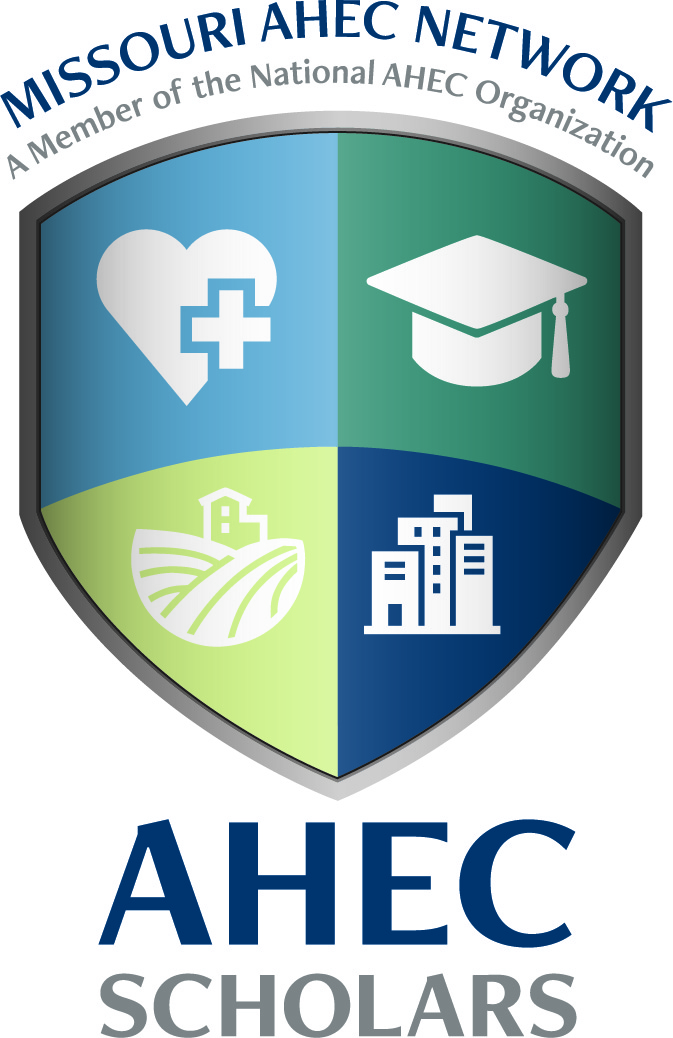
The AHEC Scholars program is an interprofessional program geared toward health professions students, including students enrolled at ATSU-KCOM and ATSU’s Missouri School of Dentistry & Oral Health (ATSU-MOSDOH). It is a longitudinal program with interdisciplinary curricula designed to implement a defined set of clinical, didactic, and community-based experiential activities. All experiential or clinical training has to be conducted in rural or underserved urban settings. Program duration is two years, for a total of 160 hours. Each year, AHEC scholars are expected to complete a total of 40 hours of community-based experiential or clinical training, as well as 40 hours of didactic education that focuses on six core topic areas: interprofessional education, behavioral health integration, social determinants of health, cultural competency, practice transformation, and current and emerging health issues. Students must agree to be tracked for a year following graduation or completion of their health professions program.
Benefits
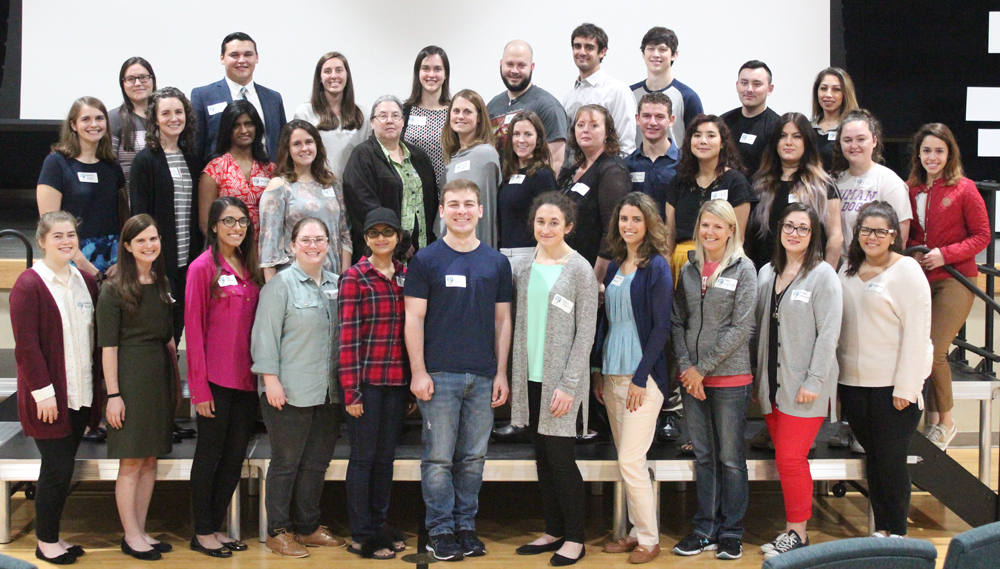 The AHEC Scholars program offers health professions students multiple benefits:
The AHEC Scholars program offers health professions students multiple benefits:
- Certification in Mental Health First Aid, National CLAS Standards, Institute for Healthcare Improvement, and more, setting AHEC scholars apart from other students in an increasingly competitive environment
- Opportunity to work hand-in-hand with other disciplines, learn their roles and responsibilities, and participate in experiential or clinical settings as an interprofessional team
- Practical skills and experience in practice transformation collaboration, which will prepare them to work with diverse patients in rural or urban communities
- Interactions with thought leaders in the health and social service field and connections with other AHEC Scholars program participants, creating an invaluable network of mentors and colleagues
- Recognition as a student leader in the health community, positioning them to join or lead a diverse and culturally competent health workforce
- The opportunity to inspire and improve health status and outcomes
- Stipends (when sufficient financial resources are available)
Contact
Learn more about the AHEC Scholars program.
Clinical experiences
Clinical Experience I
As part of the Complete DO course, each ATSU-KCOM student completes three two-hour observation experiences at healthcare sites during their first year in Kirksville. The ATSU AHEC Program Office organizes these assignments. Students will:
- Shadow a nurse in the hospital, a nursing home, or other agency.
- Shadow a physician/nurse practitioner in a clinic/hospital.
- Shadow a community agency or a patient care team in the hospital emergency department.
This program is a valuable experience that allows students to observe healthcare teams and team members’ roles and responsibilities in a variety of healthcare settings.
Learn more about Clinical Experience I (accessible to preceptors and students only).
Clinical Experiences II: Summer Clinical Experiences
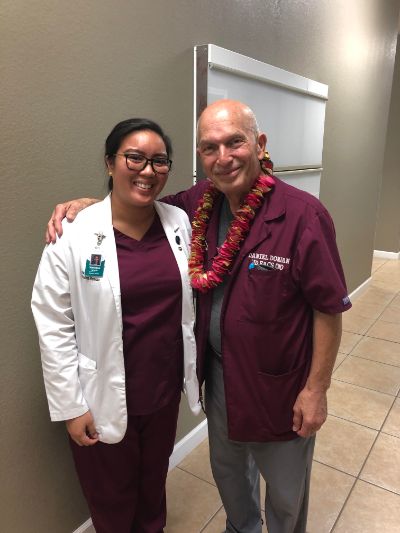
As part of the Complete DO course, each ATSU-KCOM student completes a two-week clinical experience at a clinical site in Missouri between semesters 2 and 3. Focused on patient assessment and basic clinical skills, this experience helps students apply classroom knowledge in clinical settings serving underserved populations. Each student spends two weeks with a physician in a clinic or facility that provides primary healthcare services in the areas of general practice/family medicine, general internal medicine, pediatrics, obstetrics/gynecology, or emergency care. The student assists the physician and staff, observes how the physician interacts with patients and staff, and contributes to provision of care on-site and in the community service setting.
ATSU AHEC Program Office staff:
ATSU AHEC Program Office staff work with regional AHEC center staff to complete course arrangements. They coordinate logistics, including the work of regional AHEC center staff, prepare student and preceptor packets, secure legal agreements from preceptors and host medical facilities, and coordinate course/preceptor evaluations. ATSU AHEC staff communicate regularly with students and preceptors prior to and after rotations, and evaluate rotation sites during the clinical experience.
Regional AHEC center staff:
Regional AHEC center staff recruit preceptors and ensure each training site meets standard criteria concerning patient population, preceptor qualifications, and technology access, as well as school-specific criteria. They also collaborate with ATSU AHEC staff to obtain and provide favorable student housing. In addition to their work with ATSU AHEC, Missouri regional AHEC center staff work with a variety of other health professions schools and communities to place students of various disciplines in clinical education experiences.
Learn more about Clinical Experiences II (accessible to preceptors and students only).
Community-based clinical education: Third and fourth year
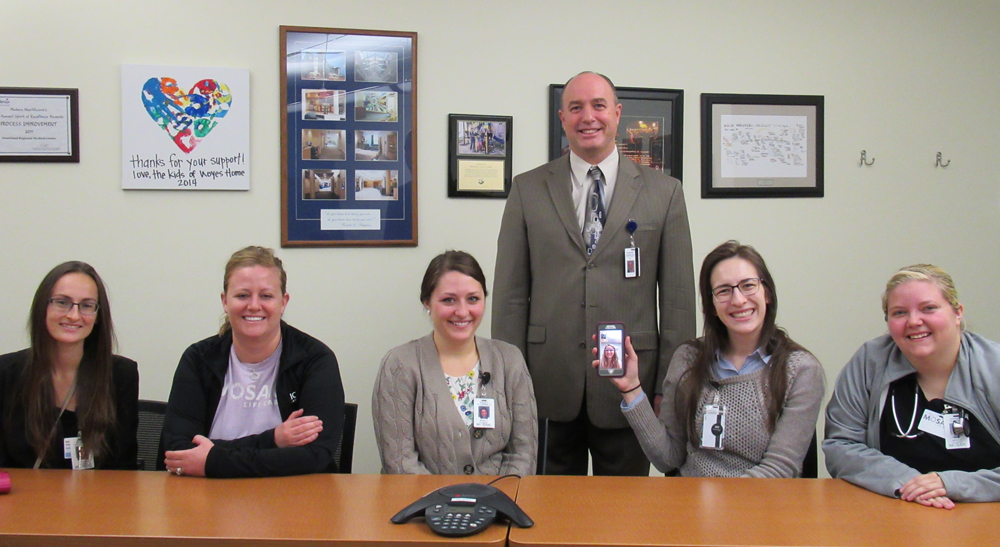 Starting in 1992, ATSU-KCOM began working with ATSU AHEC to initiate the Missouri Region program, placing third- and fourth-year medical students in community-based clinical rotation training sites throughout Missouri. Among the communities in which Missouri Region students have trained are Kirksville, Hannibal, Rolla, St. Joseph, Cape Girardeau, Sikeston, Springfield, Joplin, Kennett, West Plains, Jefferson City, and Saint Louis. In a number of these sites, Missouri regional AHEC staff collaborate with the ATSU-KCOM Department of Clinical Educational Affairs to coordinate the third- and fourth-year experiences in their regions.
Starting in 1992, ATSU-KCOM began working with ATSU AHEC to initiate the Missouri Region program, placing third- and fourth-year medical students in community-based clinical rotation training sites throughout Missouri. Among the communities in which Missouri Region students have trained are Kirksville, Hannibal, Rolla, St. Joseph, Cape Girardeau, Sikeston, Springfield, Joplin, Kennett, West Plains, Jefferson City, and Saint Louis. In a number of these sites, Missouri regional AHEC staff collaborate with the ATSU-KCOM Department of Clinical Educational Affairs to coordinate the third- and fourth-year experiences in their regions.
Elective courses
About
The ATSU AHEC Program Office offers several interprofessional and cultural learning elective courses designed to enhance student knowledge and experience in care of vulnerable populations, including older adults. Ongoing collaboration between the ATSU AHEC Program Office and ATSU Interprofessional Education and Collaboration Program has led to the development and offering of interprofessional courses.
Guided by the 2010 World Health Organization report, “Framework for Action on Interprofessional Education & Collaborative Practice,” ATSU AHEC supports health professions students in opportunities to learn about, from, and with other disciplines. Interprofessional education opportunities allow students from different disciplines to share their knowledge and skills with their team members to develop teamwork and communication skills and help prepare a “collaborative practice-ready” (Page 13) workforce. The interprofessional education courses made available through ATSU AHEC focus on the four interprofessional competency domains outlined by the Interprofessional Education Collaborative Expert Panel (2011).
- Values/ethics for interprofessional collaboration
- Roles/responsibilities
- Interprofessional communication
- Teams and teamwork
Individual Cognitive Stimulation Therapy
Individual Cognitive Stimulation Therapy (iCST) is an intervention that aims to provide cognitively stimulating activities by engaging as many senses as possible and enhancing the quality of time spent with persons who have memory and concentration difficulties. The course is derived from the evidence-based group CST intervention, supported by the Geriatrics Workforce Enhancement Program. The first cohort of students began in January 2017.
Students learn and apply the key principles of iCST, develop and implement session content, and work in teams of two with a “patient” to deliver 10 iCST sessions in their residential setting for a specified period of time. Training for the course involves viewing online CST modules and attending two orientation/training sessions and three review sessions. Data from student work contributes to an ongoing research project.
Learning objectives:
- Develop, implement, and document 10 theme-based iCST sessions
- Follow iCST key principles to ensure person-centered care
- Gain insight into geriatric syndromes and dementia
- Review and practice administering CST protocol assessment tools
The course is offered in fall and spring semesters. For more information, please contact ahecinfo@atsu.edu.
Interprofessional Cross-campus Collaborative Case
Interprofessional Cross-campus Collaborative Case (ICCC) is an interprofessional course involving ATSU and Truman State University (TSU) health professions students. In 2014, the ATSU-KCOM Curriculum Committee approved ICCC as an elective for ATSU-KCOM students, and in 2016, the ATSU-MOSDOH Curriculum Committee approved ICCC as an elective course. Student teams:
- Learn core competencies of interprofessional collaborative practice.
- Examine the life story of a virtual patient and his/her family.
- Develop a patient care plan for transition to rehabilitation or home.
The course allows students from multiple disciplines to work in teams to develop leadership skills and learn about, from, and with other health professions disciplines. Student teams are provided a complex, web-based case and asked to develop a patient- and family-centered care plan that focuses on patient safety, quality of care, and interprofessional teamwork. The culmination of this team project is a presentation by each student team to a group of judges. The presentation describes their patient care “dream team” and critical elements of care for the patient and his/her family.
The course is offered in the fall semester. For more information, please contact ahecinfo@atsu.edu.
Interprofessional Health Partners
.jpg)
Evolving from the Interprofessional House Calls elective in 2002, Interprofessional Health Partners (IPHP), an elective course approved by ATSU-KCOM Curriculum Committee, offers students from ATSU and TSU the opportunity to work with community elders and students from other disciplines to gather a health history, assess vital signs, complete a variety of assessments, and provide condition-specific education to patients in their homes. The students make three visits to their assigned elder during the course and participate in debriefing sessions with their peers to increase the learning that occurs through the course. In 2015, IPHP was approved as an elective course for ATSU-MOSDOH students.
This course incorporates information and activities introducing students to interprofessional teamwork and safety strategies. It is designed to provide practice in the following areas:
- Interviewing skills
- Geriatric health issues
- Assessment resources
- Establishing professional relationships
The course is offered in the spring semester. For more information, please contact ahecinfo@atsu.edu.
Spanish for the Health Professions
Spanish for the Health Professions is designed to help medical and dental students increase their ability to communicate with patients in Spanish. The course provides online instruction, in-class standardized patient encounters, and resources for Spanish communication in healthcare-related settings. The course includes:
- Overview of Spanish grammar.
- Introduction to medical vocabulary.
- Development of cultural awareness.
- Experience in interviewing patients.
Students must have completed three to four semesters of Spanish prior to enrolling for this course. This course is also open to students who have spent time in a Spanish-speaking country. This course is offered in the fall and spring semesters, and the classes in semesters build off each other. For more information, please contact ahecinfo@atsu.edu.
Geriatric Workforce Enhancement Program
Overview
With funding provided by Saint Louis University’s Geriatric Education Center (SLU GEC) under a Geriatric Workforce Enhancement Program (GWEP) grant from the Health Resources and Services Administration, the ATSU AHEC Program Office and regional AHEC centers collaborate with SLU to develop a primary care workforce skilled in providing care to older adults.
This work includes offering geriatrics education programs and delivering services to improve healthcare for populations of older adults. Signature initiatives include informational and training sessions with health professions faculty, staff, and students, as well as primary care providers, on administering the Rapid Geriatric Assessment (RGA).
In addition, older adults with mild to moderate dementia have benefited from the evidence-based intervention Cognitive Stimulation Therapy (CST), and other elders have participated in A Matter of Balance programs. Since 2016, more than 2,000 RGAs have been administered, and more than 1,700 primary care providers and students have been trained on the RGA and have gained or enhanced their knowledge and skills in geriatrics.
Cognitive Stimulation Therapy
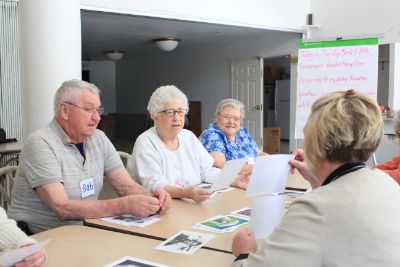
Cognitive Stimulation Therapy (CST) is an evidence-based therapy designed for adults with mild to moderate dementia that does not involve medication. The program was developed for group and individual treatment in the United Kingdom by Drs. Aimee Spector and Martin Orrell.
The program is a fun and stimulating way to build memory and improve recall, concentration, and language skills, among other things. CST is taught through a series of 14 one-hour sessions that are held twice a week for seven weeks. The content of each session includes a period of introduction, group name and song, a discussion around a current event, and a main activity. The main activity includes themes, such as hidden objects, categorizing, dream houses, current events, physical games, and childhood.
Maintenance CST (MCST) is also available once a group completes the first 14 sessions. MCST is held once a week for one hour.
For more information about CST, please contact ahecinfo@atsu.edu.
A Matter of Balance
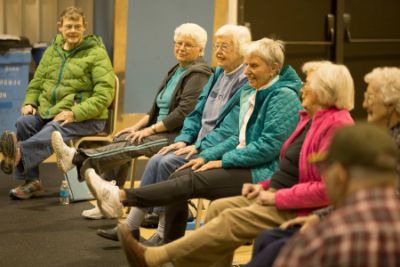
A Matter of Balance is an evidence-based program designed to identify practical ways for older adults to reduce fall risks, increase confidence, and improve physical strength and balance. Through group discussion, participants learn to view falls as controllable, set realistic goals to increase physical activity, and exercises to increase balance, strength, and endurance. Each class consists of eight two-hour sessions.
For more information about A Matter of Balance, please contact ahecinfo@atsu.edu.
Michael A. Creedon Memorial Lecture on Aging
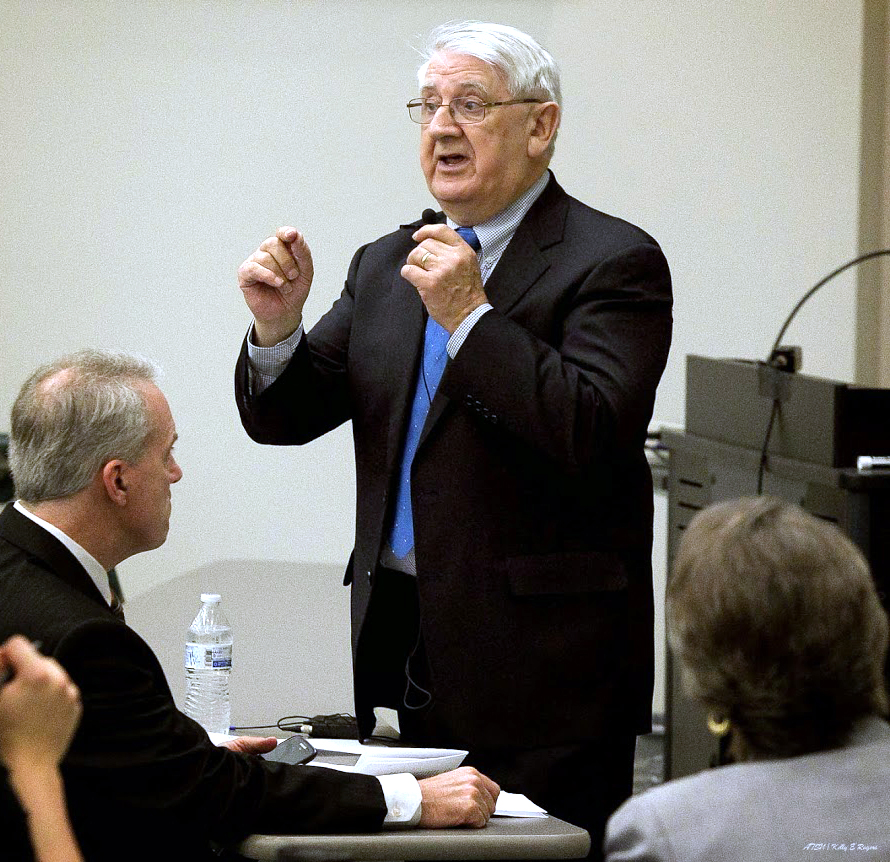 Established in 2005, the Michael A. Creedon Memorial Lecture on Aging focuses on issues of aging and the implications of an aging society. Emphasis is given to helping students and faculty understand current knowledge pertaining to best practices when encountering and treating older adults. It is a collaborative effort between the Kirksville, Missouri, and Mesa, Arizona, campuses of ATSU.
Established in 2005, the Michael A. Creedon Memorial Lecture on Aging focuses on issues of aging and the implications of an aging society. Emphasis is given to helping students and faculty understand current knowledge pertaining to best practices when encountering and treating older adults. It is a collaborative effort between the Kirksville, Missouri, and Mesa, Arizona, campuses of ATSU.
Please view previous lectures.
Noon didactic lectures
Overview
The MAHEC network offers noon lectures monthly from July to March during the academic year. Lectures are available live to all third- and fourth-year training sites in Missouri and are archived for wider availability. With the advent of the AHEC Scholars program, many of the lectures have focused on six core topics: interprofessional education, behavioral health integration, social determinants of health, cultural competency, practice transformation, and current and emerging health issues. Since 2011, approximately 2,000 health professions students and other interested health-related professionals have participated in these lectures.
NEMO Chronic Conditions Center
Overview
The NEMO Chronic Conditions Center (NCCC), formerly known as Northeast Missouri Regional Arthritis Center, provides chronic disease education and information to community groups, organizations, classes, professionals, and individuals. It is one of seven such centers established in Missouri by the Missouri Department of Health and Senior Services. The state program is designed to promote optimal quality of life for people with arthritis and other chronic diseases by increasing public knowledge regarding the need for early, accurate diagnosis and appropriate early treatment, as well as appropriate self-management techniques.
The Chronic Conditions Advisory Board makes recommendations regarding NCCC programs and issues guidelines for services. Counties served by NCCC are Clark, Lewis, Marion, Ralls, Scotland, Knox, Shelby, Schuyler, Adair, Macon, Putnam, Sullivan, Linn, Mercer, Grundy, and Livingston.
NCCC services available:
- Free pamphlets on a variety of subjects, such as disease facts, medications, exercise, managing fatigue, stress or pain, and protecting the joints from stress. Displays can be provided.
- Lending library providing books, videotapes, and CDs.
- Chronic Disease Self-management course.
- Community education forums or services, such as osteoporosis screenings.
- Group activity classes.
- Patient/family education information.
- Continuing professional education/leader training.
- Speaker’s bureau staffed by professionals who can present talks at club and community meetings or seminars.
Regional Arthritis Centers
For more information or to sign up for an upcoming class at the chronic condition center, call 660.626.2061 or visit the Missouri Regional Arthritis Centers website.
Disclaimers:
This project is partially supported by the Health Resources and Services Administration (HRSA) of the U.S. Department of Health and Human Services (HHS) under grant number U77HP3042 entitled “MAHEC 2017-2022: A Statewide Network for Interprofessional Healthcare Workforce Development and Practice Transformation in Rural and Underserved Missouri” for $2,072,000 with 50% financed using non-federal sources. This information and conclusions are those of the author(s) and should not be construed as the official position or policy of, nor should any endorsements be inferred by HRSA, HHS, or the U.S. Government.
This project is partially supported by a contract from the Missouri Department of Health and Social Services through the Primary Care Resource Initiative for Missouri (PRIMO).
This project is partially supported by the Health Resources and Services Administration (HRSA) of the U.S. Department of Health and Human Services (HHS) under grant number U1QHP28716 Geriatrics Workforce Enhancement Program for $750,000/year for 5 years, received by the Saint Louis University (SLU). ATSU AHEC program is a subcontractor under the SLU grant. This information or content and conclusions are those of the author and should not be construed as the official position or policy of, nor should any endorsements be inferred by HRSA, HHS, or the U.S. Government.